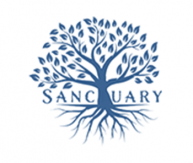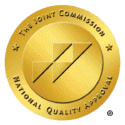Los Angeles Rehab Center
- Home
- Los Angeles Rehab Center
It’s no secret addiction can cause problems in one’s mental health, relationships, wellness, and their overall life. Yet, few people take the steps needed to overcome their addiction. For this reason, our Los Angeles, CA rehab programs focus on the whole person in recovery.
Sanctuary Treatment Center in Southern California has addiction treatment programs to help them heal all aspects of their lives. We also offer a secure environment to encourage comfort and safety.
Addiction Statistics in Tarzana, CA

Tarzana, California, is a populated neighborhood in the San Fernando Valley of Los Angeles County. However, LA County also has its share of problems, including addiction. As the US deals with an opioid epidemic, the number of opioid-related issues show a snapshot of addiction struggles in Los Angeles.
The following are opioid overdose statistics from the California Department of Public Health for LA County:
- From 2018 to 2020, opioid-related deaths increased by 164%
- In 2020, 1300 people died from opioid-related overdoses
- Opioid overdoses contributed to 2,536 emergency department visits in 2020
In addition, the LA County Department of Public Health shares the following about other drugs and alcohol:
- One in three young adults reported binge drinking at least once per month from 2015 to 2020
- Data from 2008 to 2020 shows that marijuana use in LA County among all age groups was higher than the national average
- In 2021, methamphetamine accounted for 28% of all treatment admissions in publicly funded treatment programs
The above-mentioned statistics show the need for rehab centers in LA County including Tarzana and the rest of the San Fernando Valley.
Los Angeles Addiction Rehab Programs
Rehab centers in Los Angeles, California help clients with a number of different needs. Our addiction treatment programs are in three primary categories: alcohol addiction, drug addiction, and dual diagnosis. Often, drug or alcohol addiction occurs as a result of an underlying condition. That is why each of our programs supports all areas of health and wellness with treatment choices, such as holistic rehab and family therapy.
The following are the main rehab programs we offer in Los Angeles:
Alcohol
While alcohol use is more socially acceptable than other drugs, it is still harmful. It can lead to negative physical and mental health issues. Quitting “cold turkey” can be uncomfortable and even dangerous. Many people can’t quit drinking on their own. However, alcohol rehab in Los Angeles, California, can help a person or a loved one safely recover from alcohol addiction.
Drug Addiction
Drug addiction can cause many problems in the lives of users and their loved ones. Drug rehab is vital to giving up drugs for good. At our drug addiction treatment center, we offer person-centered treatment and care for all our clients. Our programs can treat addictions to all types of substances. These include prescription and illicit drugs. All in all, we are here to help them get their life back from drug addiction.
Dual Diagnosis
Underlying mental health issues, such as trauma, depression, and anxiety, can drive a person’s addiction to drugs or alcohol. A person might use substances to “self-medicate” when they have an untreated co-occurring mental health disorder. They need to treat both issues at the same time for a successful recovery. For this reason, we offer rehab for dual diagnosis disorders in Los Angeles, California.
How Our Los Angeles Rehab Center Works
Rehab in Los Angeles, California offers a variety of treatment therapies. We also offer aftercare plans to continue recovery after treatment. Our addiction treatment options are diverse and offer many choices. Our goal is to help clients achieve recovery and maintain long-term sobriety.
It’s vital those who need treatment take the steps to recover because given too much time, they may make excuses to avoid treatment. The body and mind have challenges during drug and alcohol withdrawal. Our addiction treatment center can properly evaluate them.
First, we can figure out what type of detox program is best for them. After detox, we can plan continued treatment, like inpatient rehab or outpatient services. We can also evaluate someone with a dual diagnosis of both substance use and mental health disorders.
During inpatient rehab, clients have several treatment options. They might participate in family therapy, or they can try holistic rehab to focus on the mind, body, and spirit. In addition, we encourage our clients to support one another throughout their recovery. This helps foster a community of support and security that creates the healing environment of Sanctuary Treatment Center.

Begin Rehab Today in Los Angeles, CA
Untreated addiction can create challenges in the lives of both addicts and their loved ones. While there is no cure for the disease of addiction, treatment can help many people reclaim their lives. Our rehab center in Los Angeles, California, is here to help you or your loved one take back your life from addiction.
Contact Sanctuary Treatment Center today to begin your journey of recovery.
Sanctuary Treatment Center
Ask Us Anything

We Take Insurance!
Sanctuary Treatment Center accepts most private PPO insurance plans, as well as some private HMO plans. Through private insurance plans, individuals and families can access high quality addiction treatment services. If you have questions regarding insurances, please give us a call.

Copyright © 2022 Sanctuary Treatment Center.
